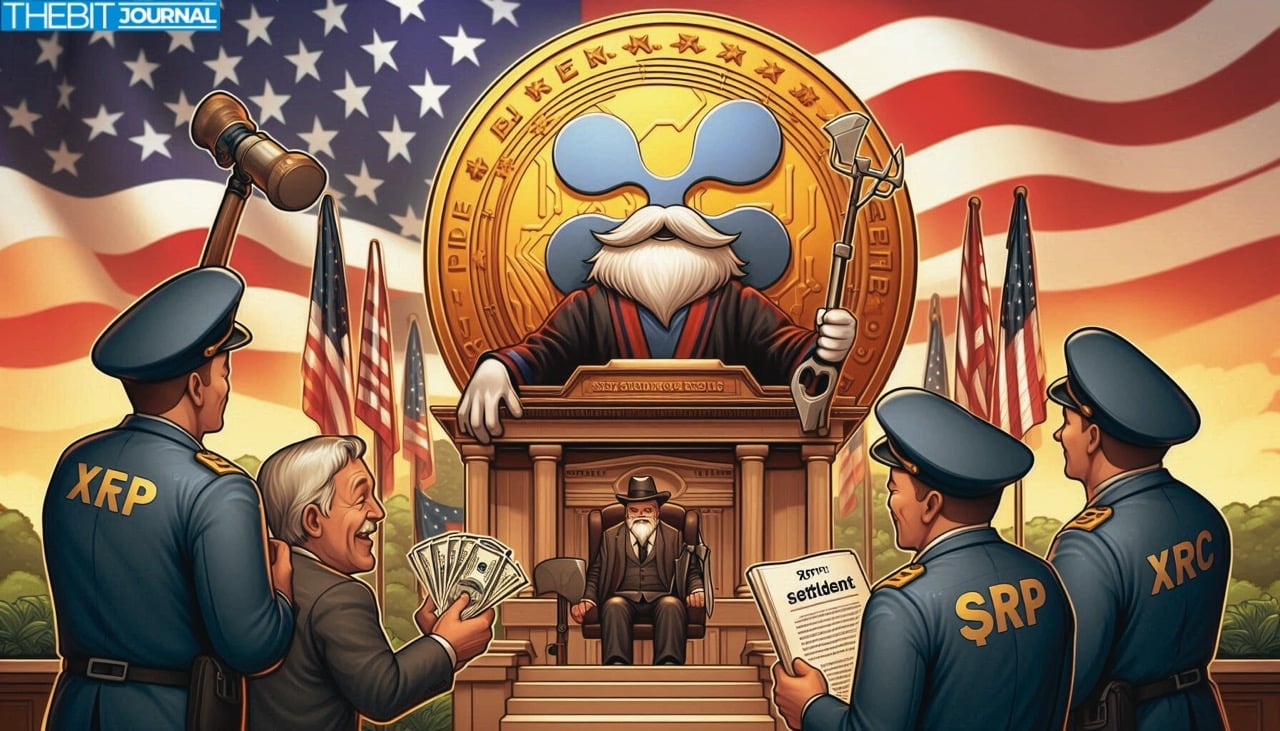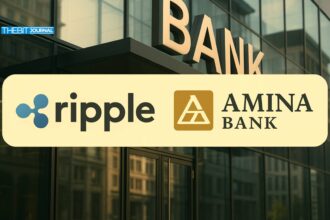Ripple Labs has stepped out of the courtroom and into the policy arena with a formal proposal to reshape how the U.S. Securities and Exchange Commission (SEC) classifies digital assets. After years of battling the regulator, Ripple is now offering a solution that could bring long-sought clarity to the crypto industry.
Ripple’s legal framework introduces a test to determine when a digital asset is no longer a security, an issue at the heart of ongoing regulatory debates. The proposal has sparked wide discussion in policy circles, with some calling it a “blueprint for sanity in U.S. crypto regulation.”
A Two-Part Test: When Does a Token Stop Being a Security?
At the core of Ripple’s proposal is a two-pronged legal test to define when a digital asset should no longer be subject to U.S. securities laws:
Material Commitments Fulfilled: Has the issuer delivered on all promises made to initial investors?
No Ongoing Legal Rights: Do holders no longer have enforceable rights linked to the original sale?
According to Ripple, when both criteria are met, the asset’s original investment contract is “severed,” and the token should no longer be regulated as a security.
“We’re not trying to rewrite securities law,” said Stuart Alderoty, Ripple’s Chief Legal Officer. “We’re trying to clarify where it ends.”
Replacing “Sufficient Decentralization” with “Network Maturity”
In a direct critique of current SEC rhetoric, Ripple proposes ditching the vague term “sufficient decentralization” in favor of a more measurable standard: “network maturity.”
Under this model, an asset would not be a security if it satisfies these conditions:
| Network Maturity Criteria | Requirement |
|---|---|
| Market Capitalization | At least $1 billion |
| Operational History | Minimum of 10 years on a public chain |
| Control Structure | No single party holds core control |
“It’s a more practical and investor-protective standard,” said Alderoty. “We want a test that reflects reality, not regulatory guesswork.”
Advocating for a Legislative Approach, Not SEC Overreach
Ripple’s proposal also urges Congress, not the SEC, to fill in regulatory gaps. The firm argues that the SEC’s reliance on ambiguous concepts like “fully functional” or “decentralized enough” leaves projects in legal limbo.
“This is not how you regulate a trillion-dollar industry,” said Alderoty. “We need laws, not slogans.”
Ripple emphasizes the need for legislative action to provide legal certainty, investor protection, and room for innovation, all without resorting to endless litigation.

Safe Harbor Provisions: Breathing Room for Innovators
In a nod to projects still in their early phases, Ripple also backs the creation of a clear safe harbor framework. This would offer temporary regulatory relief for teams that operate transparently and in good faith during development, similar to early-stage protections in traditional startup law.
“Without a runway, innovation stalls,” Alderoty added. “We need space to build responsibly.”
Context: Ripple’s Battle-Hardened Perspective
This proposal doesn’t come from an outsider, it comes from a company that’s been in the regulatory trenches. In 2023, Ripple partially won its SEC case when a federal court ruled that XRP is not a security in secondary market trading, but did rule that some early institutional sales were securities.
This nuanced ruling inspired Ripple to craft a framework reflecting the evolving nature of digital assets, one that avoids painting all crypto with a single brush.
Industry Response: Thoughtful, Measured Support
While critics remain skeptical of industry-led frameworks, many legal scholars and blockchain policy analysts praised Ripple’s submission as “surprisingly balanced.”
“It’s rare for a defendant to help design the rules,” tweeted digital asset lawyer Jake Chervinsky. “But this shows Ripple is thinking bigger than just itself.”
With a Republican-led SEC and ongoing calls for crypto legislation in Congress, Ripple’s suggestions may gain traction at the perfect time.
FAQs
What is Ripple proposing to the SEC?
Ripple submitted a legal test and regulatory framework to define when crypto assets should no longer be considered securities.
What is the “network maturity” test?
A set of measurable criteria, including market cap, decentralization, and age of the network, used to determine regulatory status.
Does this impact the XRP case?
No, but it reflects lessons learned from Ripple’s legal battle and aims to create industry-wide clarity.
Who would decide when an asset passes the test?
Ripple suggests this should be codified in law and overseen by a designated regulatory body, ideally under congressional authority.
Glossary
SEC (Securities and Exchange Commission): U.S. financial regulator overseeing securities markets.
Network Maturity: A proposed benchmark to determine if a crypto asset is no longer a security.
Safe Harbor: A temporary legal protection for startups to build without immediate regulatory enforcement.
Material Commitments: Promises made by a project to its initial investors or users.






























